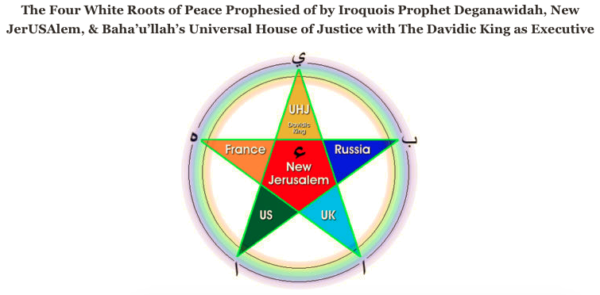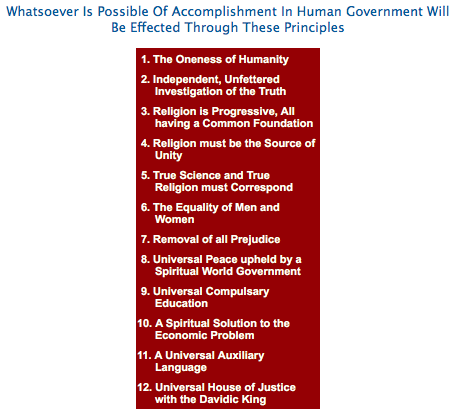In the world of existence man has traversed successive degrees until he has attained the human kingdom. In each degree of his progression he has developed capacity for advancement to the next station and condition. While in the kingdom of the mineral he was attaining the capacity for promotion into the degree of the vegetable. In the kingdom of the vegetable he underwent preparation for the world of the animal, and from thence he has come onward to the human degree, or kingdom. Throughout this journey of progression he has ever and always been potentially man.
In the beginning of his human life man was embryonic in the world of the matrix. There he received capacity and endowment for the reality of human existence. The forces and powers necessary for this world were bestowed upon him in that limited condition. In this world he needed eyes; he received them potentially in the other. He needed ears; he obtained them there in readiness and preparation for his new existence. The powers requisite in this world were conferred upon him in the world of the matrix so that when he entered this realm of real existence he not only possessed all necessary functions and powers but found provision for his material sustenance awaiting him.
Therefore, in this world he must prepare himself for the life beyond. That which he needs in the world of the Kingdom must be obtained here. Just as he prepared himself in the world of the matrix by acquiring forces necessary in this sphere of existence, so, likewise, the indispensable forces of the divine existence must be potentially attained in this world.
What is he in need of in the Kingdom which transcends the life and limitation of this mortal sphere? That world beyond is a world of sanctity and radiance; therefore, it is necessary that in this world he should acquire these divine attributes. In that world there is need of spirituality, faith, assurance, the knowledge and love of God. These he must attain in this world so that after his ascension from the earthly to the heavenly Kingdom he shall find all that is needful in that eternal life ready for him.
That divine world is manifestly a world of lights; therefore, man has need of illumination here. That is a world of love; the love of God is essential. It is a world of perfections; virtues, or perfections, must be acquired. That world is vivified by the breaths of the Holy Spirit; in this world we must seek them. That is the Kingdom of everlasting life; it must be attained during this vanishing existence.
By what means can man acquire these things? How shall he obtain these merciful gifts and powers? First, through the knowledge of God. Second, through the love of God. Third, through faith. Fourth, through philanthropic deeds. Fifth, through self-sacrifice. Sixth, through severance from this world. Seventh, through sanctity and holiness. Unless he acquires these forces and attains to these requirements, he will surely be deprived of the life that is eternal. But if he possesses the knowledge of God, becomes ignited through the fire of the love of God, witnesses the great and mighty signs of the Kingdom, becomes the cause of love among mankind and lives in the utmost state of sanctity and holiness, he shall surely attain to second birth, be baptized by the Holy Spirit and enjoy everlasting existence.
Is it not astonishing that although man has been created for the knowledge and love of God, for the virtues of the human world, for spirituality, heavenly illumination and eternal life, nevertheless, he continues ignorant and negligent of all this? Consider how he seeks knowledge of everything except knowledge of God. For instance, his utmost desire is to penetrate the mysteries of the lowest strata of the earth. Day by day he strives to know what can be found ten meters below the surface, what he can discover within the stone, what he can learn by archaeological research in the dust. He puts forth arduous labors to fathom terrestrial mysteries but is not at all concerned about knowing the mysteries of the Kingdom, traversing the illimitable fields of the eternal world, becoming informed of the divine realities, discovering the secrets of God, attaining the knowledge of God, witnessing the splendors of the Sun of Truth and realizing the glories of everlasting life. He is unmindful and thoughtless of these. How much he is attracted to the mysteries of matter, and how completely unaware he is of the mysteries of Divinity! Nay, he is utterly negligent and oblivious of the secrets of Divinity. How great his ignorance! How conducive to his degradation! It is as if a kind and loving father had provided a library of wonderful books for his son in order that he might be informed of the mysteries of creation, at the same time surrounding him with every means of comfort and enjoyment, but the son amuses himself with pebbles and playthings, neglectful of all his father’s gifts and provision. How ignorant and heedless is man! The Father has willed for him eternal glory, and he is content with blindness and deprivation. The Father has built for him a royal palace, but he is playing with the dust; prepared for him garments of silk, but he prefers to remain unclothed; provided for him delicious foods and fruits, while he seeks sustenance in the grasses of the field.
Praise be to God! You have heard the call of the Kingdom. Your eyes are opened; you have turned to God. Your purpose is the good pleasure of God, the understanding of the mysteries of the heart and investigation of the realities. Day and night you must strive that you may attain to the significances of the heavenly Kingdom, perceive the signs of Divinity, acquire certainty of knowledge and realize that this world has a Creator, a Vivifier, a Provider, an Architect—knowing this through proofs and evidences and not through susceptibilities, nay, rather, through decisive arguments and real vision—that is to say, visualizing it as clearly as the outer eye beholds the sun. In this way may you behold the presence of God and attain to the knowledge of the holy, divine Manifestations.
You must come into the knowledge of the divine Manifestations and Their teachings through proofs and evidences. You must unseal the mysteries of the supreme Kingdom and become capable of discovering the inner realities of things. Then shall you be the manifestations of the mercy of God and true believers, firm and steadfast in the Cause of God.
Praise be to God! The door of divine knowledge has been opened by Bahá’u’lláh, for He has laid the foundation whereby man may become acquainted with the verities of heaven and earth and has bestowed the utmost confirmation in this day. He is our Teacher and Adviser; He is our Seer and the One clement toward us. He has prepared His gifts and vouchsafed His bounties, revealed every admonition and behest, prepared for us the means of eternal glory, breathed upon us the life-quickening breaths of the Holy Spirit, opened before our faces the doors of the paradise of Abhá and caused the lights of the Sun of Truth to shine upon us. The clouds of mercy have poured down their precious rain. The sea of favor is swelling and surging toward us.
The spiritual springtime has come. Infinite bounties and graces have appeared. What bestowal is greater than this? We must appreciate the divine generosity and act in accordance with the teachings of Bahá’u’lláh so that all good may be stored up for us and in both worlds we shall become precious and acceptable to God, attain to everlasting blessings, taste the delicacy of the love of God, find the sweetness of the knowledge of God, perceive the heavenly bestowal and witness the power of the Holy Spirit.
This is my advice, and this is my admonition.
Abdu’l-Baha’-A talk given at 309 West Seventy-eighth Street, New York City on July 6, 1912


